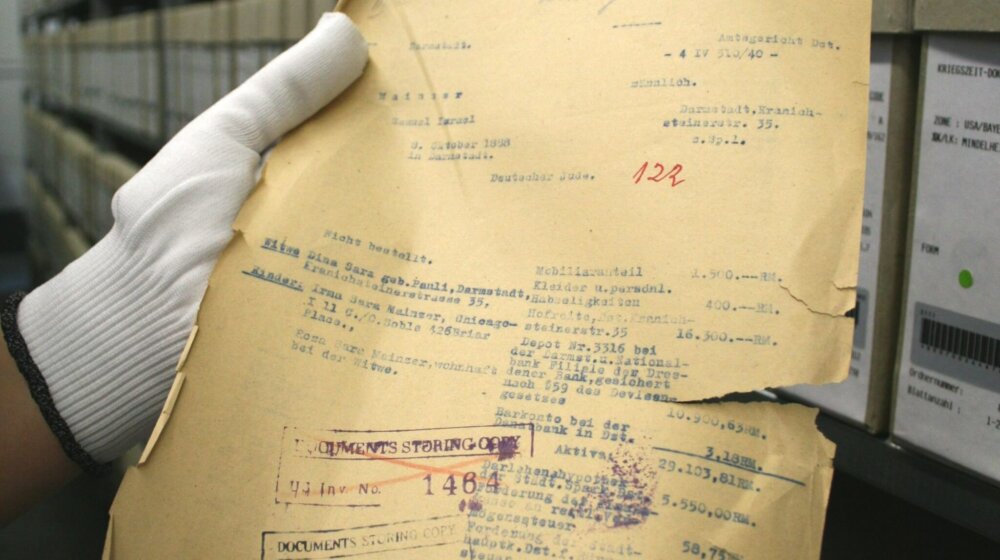Funding for the Restoration of Important Documents

The Arolsen Archives are receiving 400,000 euros to protect an endangered collection. The documents, which are listed in the UNESCO Memory of the World Register, testify to the use and character of forced labor under the Nazi regime and identify many forced laborers by name.
More than 700,000 documents can now undergo deacidification, restoration and repacking. The Coordination Office for the Preservation of the Written Cultural Heritage (Koordinierungsstelle für die Erhaltung des schriftlichen Kulturguts, KEK) has awarded the grant, which comes from the budget of the German Federal Government Commissioner for Culture and the Media. The collection contains documents pertaining to the deployment of forced laborers in the Nazi period by such entities as the “Deutsche Arbeitsfront” and the “Organisation Todt” as well as private businesses, employment offices and company health insurance funds. It is of major significance both for research projects and for the documentation of personal fates.

»We’re very happy about the prospect of restoring and safeguarding a large and important endangered collection with the aid of the awarded funds. Thanks to the use of suitable packing materials, it will be better protected than it is now.«
Christian Groh, Head of the Archives
The restoration measures will also include the repair of creases and tears that came about through use and incorrect storage. Before their digitization, the documents were the primary tool in the search for missing persons and the reconstruction of persecution histories—and they bear many traces of that use. The paper, which weighs some 6.6 tons in all, will also be cleaned and deacidified. This treatment will ensure the documents’ continued legibility and improve the paper’s resistance to aging.
However, Groh also points out a fundamental problem faced by the Arolsen Archives: “Unfortunately, after the restoration we’ll have to return the documents to our temporary storage space. For the preservation of this documentary heritage, we hope that that stopgap can soon be replaced by a proper archive storage building.”
Over the past years, the Arolsen Archives have already succeeded in restoring several of their collections with the aid of funding from the KEK. In the letter announcing the award of the grant, Monika Grütters, the Minister of State for Culture and the Media, welcomes the efforts of the Arolsen Archives to preserve the collection for future generations: “With your project, you are making an important contribution to countering the acute endangerment of documentary cultural heritage and preserving it for the future with restoration and conservation measures. For this I thank you.”

